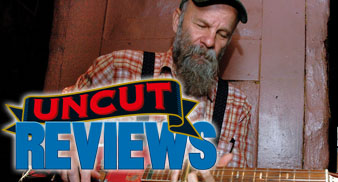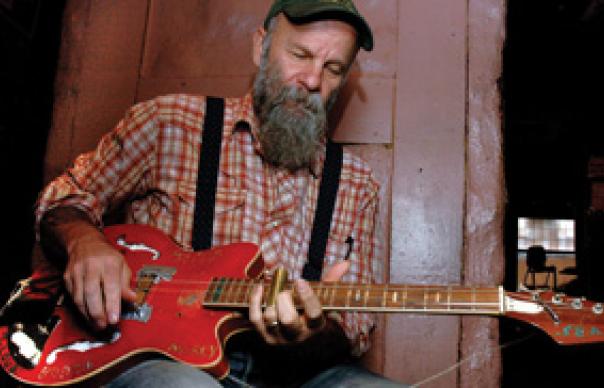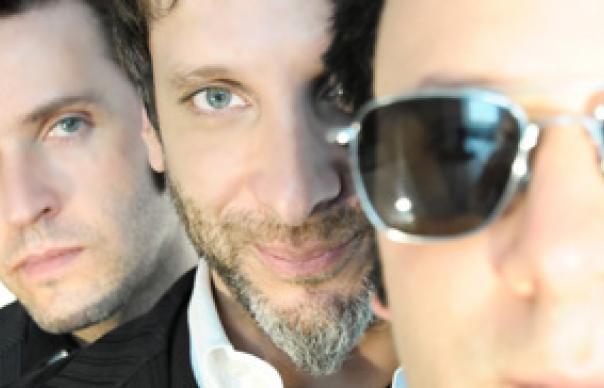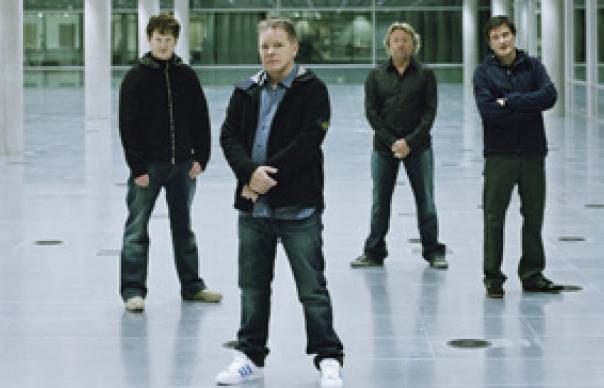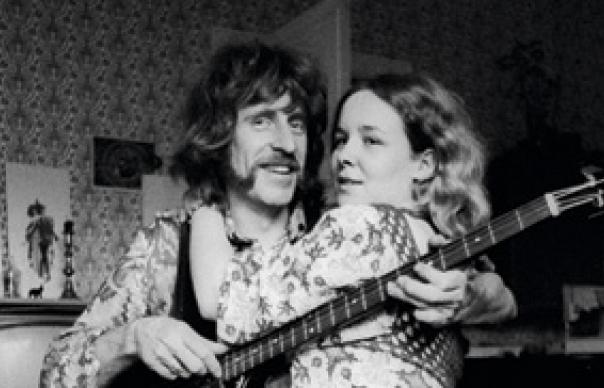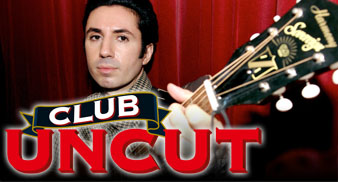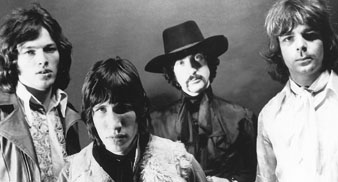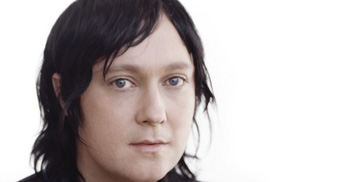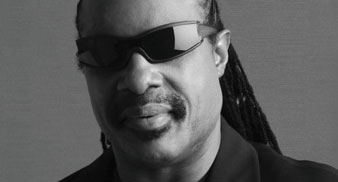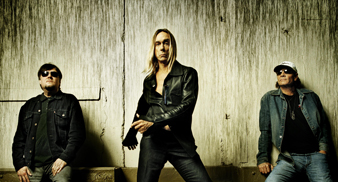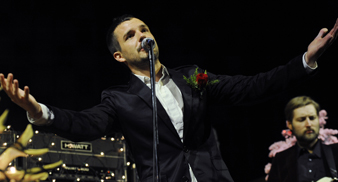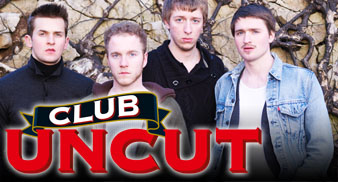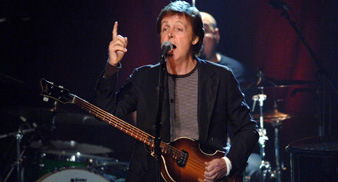In the next few months, Domino are planning a big reissue series of the Robert Wyatt back catalogue, and the arrival of the first batch the other week compelled me to dust down this interview transcript from the summer of 2007. I visited Wyatt at home in Louth, a little before the marvellous “Comicopera” was released. An edited version of the interview appeared in Uncut last year but, if you’ll excuse my indulgence, I thought the whole thing was worth putting out there. An incredible man, I think.
I have no agenda, as they say on Big Brother. Gameplan? Me? No, I’m just here for the crack, man. Alfie watches it, I see it. It’s very uncomfortable viewing. Some of it I find unbearable. I can’t believe how rude people are to each other. Andy Warhol would absolutely love it, there’s so much Warhol in it, in terms of the concept and the practise, and there’s a lot of wit in how it’s done.
Did you ever meet Warhol?
No, although we did stay at the Chelsea Hotel and Kevin [Ayers] – so it must have been 1968 – went round knocking on the doors. He said, ‘I’ve heard this hotel’s full of interesting people. Are you interesting?’ He’d usually get a half-open door and someone saying, [American drawl], ‘Fuck off, man.’
His associates who I have met, little bloke, in 1967 when we were playing in the south of France in a long summer thing adjacent to a German beer festival, basically living on the beach. . . Grey, actually. People always think beaches are pinky orange, but this was grey with dirt. or was it pine needles? I don’t remember. Rubbish for sex, actually, don’t believe the adverts. Anyway, yeah, we were doing music for a play called “Desire Caught By The Tail” written by Picasso, I think. And amongst the people involved were people who I was later told were Factory stars and starlets. And they were very nice, very funny, and brought a nice alternative thing to the place. I mean, the French hippies were pretty hip anyway, but they were nice.
It strikes me that in a certain cultural world, there were few people you didn’t meet.
Well I haven’t gone out of my way to meet people. I think partly it’s because I have been at it a long time now. I’m in my sixties and I think my first paid job as a drummer was in 1963, so it’s been getting on for 35 yrs, hasn’t it?
44.
Is it really? And all that time, the first ten years certainly, was going round drumming. And it’s a social activity. Drumming is like being the engine of a car. Somebody else has to be the car, and so you do work with other people. I honestly didn’t know who they were then, I just thought they were these Americans. It was a long time ago, and I’m a bit confused.
Growing up, were you aware of the significance of hanging out with Robert Graves, or was he just one of your parents’ friends?
No, he was already an awe-inspiring giant, really. He’d been a friend of my mum’s in the ’30s, and I’d been on the loose for years. I left school at 16, I didn’t have enough exam results to go to university, and it was about seven years between leaving school and really starting to earn a living as a drummer. It’s like trying to remember a dream, there’s bits and pieces.
My mum said, ‘Have you got anywhere on your patch where Robert could park for a bit?’ And he said yeah. He’d got a tiny fisherman’s cottage, no taps, just down towards the sea. We used to go up to his house for a meal and stuff. I really liked him. luckily for me his son-in-law at the time, Ramon Farran, Catalan name, was a drummer, and Ramon’s father had worked in a Catalan dance band. Ramon was an expert drummer and sight reader and taught me a bit.
Robert you’d think, given his culture, if he liked other arts it would be classical music. But in fact he was a jazz fan. Not just a jazz fan, but he really liked Cecil Taylor. He’d heard Cecil Taylor in New York and had rushed up and embraced him at the piano onstage, he was so moved. So Robert wasn’t just stuck in a classical ivory tower. His fans may be, but he never was, so me and Ramon had that in common. And the fact that I wasn’t very well-read didn’t seem to bother him at all.
Surely you must have absorbed a lot of culture and knowledge living in the world of your parents?
Well not really. My dad had got himself through university, but my mum hadn’t been to university. My mother was a journalist. I didn’t know my dad ‘til I was six, ‘cos he was living with his first family until then, then he came and joined us. I was in a single parent family ‘til i was six. I had a dad for about 12 years, then he died when I was about 18. He had his classical music records, first half of the 20th Century stuff, and they did used to take me to operas, ballets and exhibitions, the Natural History Museum, the Horniman museum, stuff like that. But they hadn’t really got any money, and so I used to go abroad and stay with a family and their kids came and stayed with us. Both kids got a free holiday.
Because of having notionally Bohemian parents, maybe you were living the hippy dream before anyone had coined the phrase? I guess your life with Daevid Allen especially pre-empted what became a social phenomenon a few years later.
Well I don’t know. A lot of people acquired their sensibilities and their cultural orientation in the ‘50s before rock, Kerouac for example was a jazz fan. Like Andy Warhol, he was Catholic and quite straight, people aren’t quite what anybody thinks they are. In fact my dad was a working industrial psychologist, my mum was a working journalist, and it was a fairly straight upbringing.
It’s just that we had a lot of nice artbooks around the house and I struggled unsuccessfully through grammar school, which i absolutely hated. I couldn’t do anything. I wasn’t bad at English grammar, but funnily enough I couldn’t do English literature. I still like a bit of grammar. I like knowing where apostrophes go, it amuses me. Before that woman wrote that book [Lynne Truss]. . . I don’t like telling other people where they should go, but I enjoy them for myself.
I thought you’d be more of a Chomsky fan.
That’s just a lucky accident that he’s a grammatist. But I didn’t like Canterbury really. I got caned a lot when I was at school. I think that’s what put me off.
What for?
The first time was when a school prefect – what are they, eh? – said I was smoking behind the school bike shed, which I hadn’t been. I was caned for that, that really hurt. Then I started smoking. Then once in an art class they said, design a building. So I said, ‘these are walls which stop the ceiling hitting the floor, otherwise you’d get squashed,’ I just did a very basic thing. They thought I was having a laugh and the art teacher said I was making a mockery of the class. I was caned for that.
We lived near Canterbury Cathedral and we used to sing there occasionally, well every year. And once, in a casual moment of hubris, I wrote “Jesus Christ” in a visitor’s book and there was, sod’s law, a prefect behind me who reported me to the headmaster. I was caned for that.
Then when we got to the 5th form, the headmaster gave us boaters because he fancied we were a public school. We weren’t, but he gave us boaters to make it look like that. and I steamed mine up into a sort of cowboy hat, and I was caned for that, for letting the school image down in the town. Blimey, my bum was sore by the end of all that. It put me right off.
I was hopeless at school. I didn’t understand the lessons. I didn’t mind French, because I’d learned a bit of that from these foreign students, being sent to stay with them when I was 10 or 11.
It strikes me that all the way through Soft Machine as well you were a bit of a troublemaker?
I was always getting into trouble, but I’m not sure that’s the same thing. There’s a very good magazine called. . . not Green Onions. . . Pink Lettuce... Red Pepper, in which there’s a column called Born Rebel. Born Rebel; that means whatever is going on, you’re against it. I never was a born rebel, I think there’s something utterly meaningless about that, it’s totally posey. I never was. I liked my parents, I tried to fit in. Half my recording is an attempt to make normal records that sound like proper records, seriously, but what I do just doesn’t come out normal. That’s not deliberately trouble making.
I know that sounds coy, but it’s just. . . I’m not a born rebel. I’m very happy. When I joined the Communist Party, someone said ‘God, all that uniformity, don’t you mind being told what to do?’ And I said, ‘No, not at all’. Someone said, ‘You can’t paint that, it’s against the interests of the working class.’ I said ‘Oh, alright, sorry,’ and I tried something else. It doesn’t bother me.
But compared with later line-ups of Soft Machine?
Well I was stubborn. We were self-generating in a way what we did. What we did when we started out was unique simply because we all played. . . I dunno, how do you put it? We were immersed in the records that we liked, but what we played together wasn’t based on an attempt to sound like anything that we’d ever heard before. Whereas what became known as jazz rock and fusion in the 1970s was very much jazz musicians saying, ‘Cor, it’s not fair, all these rock musicians making all this money, we can play better than them, let’s all get electric guitars, play louder and then we’ll blow them all offstage.’
And then being puzzled when Peter Green and Jeff Beck and Hendrix still sounded better than them and getting even grumpier. A condescending attitude to rock on behalf of jazz musicians. I don’t want anything to do with that, and I just felt that as we crept into the ‘70s it was all, ‘ooh have you heard what so and so’s doing, have you heard the latest Miles Davis?’ I listened to these things, but the idea that that was what you had to do just seemed... I thought, where was what you were doing? Why not develop that?
I guess a common strain through all your music is that it’s easy to see certain music that you like – Miles Davis, say. But it strikes me that you’re incapable of sounding like Miles. So you have an idea of a Miles record, but the physical and mental processes that come out with your music at the other end are radically different - ie you use voice instead of trumpet. That’s what makes genuinely idiosyncratic and original music.
The drumming, of course I’d listened to drummers. To decide to play like Keith Moon but also to play like Jack De Johnette, you can’t, because they’re clearly not the same thing. Then also play like the James Brown rhythm section, you can’t. You can love all these people, and listen to them with awe and respect, but in the end what you come up with has to come from somewhere else, otherwise you’re caught between stools and you’ve got nothing.
OK, so troublemaker’s not right word. Before you had your accident, and before your solo career started in earnest, you almost seem ashamed of the person you were and the behaviour you indulged in.
Yeah well I thought in a way, with the band in the ‘60s, that it was being taken in a direction more and more that was competing with the current state of American jazz-rock. And I couldn’t or didn’t want to do that. There was this feeling that because I couldn’t read music, I remember the organist [Mike Ratledge] once said to me, ‘Why don’t you learn to read music?’ And I answered, ‘So that you can’t tell me what to play.’ I think that was probably the nail in my coffin as far as that band was concerned.
What about the drinking? Weren’t you on a different social path?
Well you’d have to ask them, because we didn’t talk about that. But we all know that young drunken men are a terrible pain, and the others didn’t really drink. They weren’t always kind or anything, but they were well-behaved, and I certainly wasn’t. And I may have been much more bolshy than I remember.
When you were on tour with Hendrix in the States and you played Winterland, didn’t you get into some scrap with Bill Graham?
Yeah he was shouting at us so loud, he was such a bully, I’d never heard anything like it, having not watched a lot of modern American films at the time where everybody does it. It was just a cultural difference.
What was he trying to get you to do?
I can’t remember. But I thought, ‘oh fuck this, I can’t play for this person, Ican’t work with this person, and obviousy part of the thing was Ididn’t realise how important he was. It was just another gig as far as I was concerned. I know now that he put on some magnificent stuff. I can’t remember the details, but he did say, ‘you’ll never play here again,’ which didn’t bother me; I’d never heard of the place anyway. I wasn’t interested in American rock, so I didn’t know the myths around it.
Didn’t you end up spending time in Laurel Canyon with Hendrix at the end of the second tour?
That’s true. The whole of ‘68 we were there with the Experience, and at the end of it, our group [Soft Machine] broke up basically. I hung on because Noel and Mitch and Hendrix said, ‘we’ve got this place in Laurel Canyon, it’s quite big, hired, swimming pool and there’s a spare room if you want to stay with us.’ I’d hung out more with them than with the members of the band I was in because they were all drinkers like me, whereas the band I was in didn’t do any of that stuff, they just went back to the hotels and were very sensible.
Anyway I really liked hanging out with Mitch and Noel and they were very kind to me because our band was on 200 dollars a week expenses, which didn’t leave a lot of money for hanging out, and Noel and Mitch always made it seem like I was doing them a favour by hanging out with them. Noel was a lovely bloke in particular. I realise now he knew I didn’t have enough money to have the fun I wanted to have, so he basically got me in everywhere as his mate, and by the end of the tour we were good pals. So I stayed with them.
Can you remember any specific adventures with Hendrix?
Everything just pales into insignificance compared with listening to him play every night. I mean, he was absolutely wonderful and I knew it then. It’s not a question of realising it afterwards, it was just eye-wateringly magical what he did. And the band. I learned a lot from Mitch, very underestimated drummer. He just played for Hendrix using all he knew. Drummers do tend to huddle together sometimes, I remember us both listening to Tony Williams and thinking, fuck, he’s younger than us, listen to that and being knocked out by him.
You know they say how Marley would transform a studio or wherever he was? Up would go the Lion Of Judah and the drapes and the candles and the iconography and the smoke, turning the whole place into some kind of temple. Hendrix in a very simple way would do that in his hotel rooms, turn them into some curious little temple of a hitherto unknown sect. Not in a po-faced way, he’d just transform it into a magic little room. and he’d play the records he liked, which were hard, heavy funk records. The nearest I can remember to rock that he ever played was Sly Stone. He was very shy and polite. Extremely so, courteous to a Victorian extreme.
You talk about drinking a lot. Did you take drugs with him?
I didn’t take drugs no, I just drank. I’ve always found that since you can get completely out of your brain on legal drugs, why bring the law into it.
It’s you not being a rebel again.
I don’t like breaking the law, it embarrasses me. The idea of hanging round policemen is so dull.
Did you never take acid once?
I don’t think so. I think I may have taken some substitute – was it TCP? No, that’s what you cure cuts with. Knowing me, I probably did take TCP! Thinking, phew, I don’t fancy these hard drugs. I didn’t understand it, and also I didn’t like drug dealers. I found them very sleazy sort of people. I didn’t like it at all. And I associate certain conversations with rooms full of drugs, like [whiney US voice] ‘what sign are you?’ and, ‘do you like The Doors?’ And the record would be the Grateful Dead always. Was it always the same record? Who could tell? I got claustrophobia in that atmosphere.
The thing I didn’t understand about white American rock was that they were loud folk bands. Whereas the English scene was much blacker. Even before rock’n’roll, the trad jazz musicians had this fantasy New Orleans that they took around in their heads. The modernists had an imaginary Harlem in their heads – which I still have. And then James Brown, that was our thing.
There were two different cultures in America, which were black music trying to get in to the mainstream, trying to belong to other Americans, and white kids trying to get out of the mainstream and not belong. A lot of black Americans wanted to dress smart and look respectable to show that they could, and they were embarrassed by the way that rock picked up on blues and what they considered to be their illiterate roots, a bit like Wynton Marsalis now considers hip hop as a misuse of their own rural heritage.
I’ve never felt anywhere so dislocated culturally as amongst liberal white American friends. I just kept missing a step and feeling that there was a whole chunk, of what had made me what I was, was missing. I was much more at home in Paris or Milan.
Click on the links for Part Two, Part Three and Part Four of the interview.


